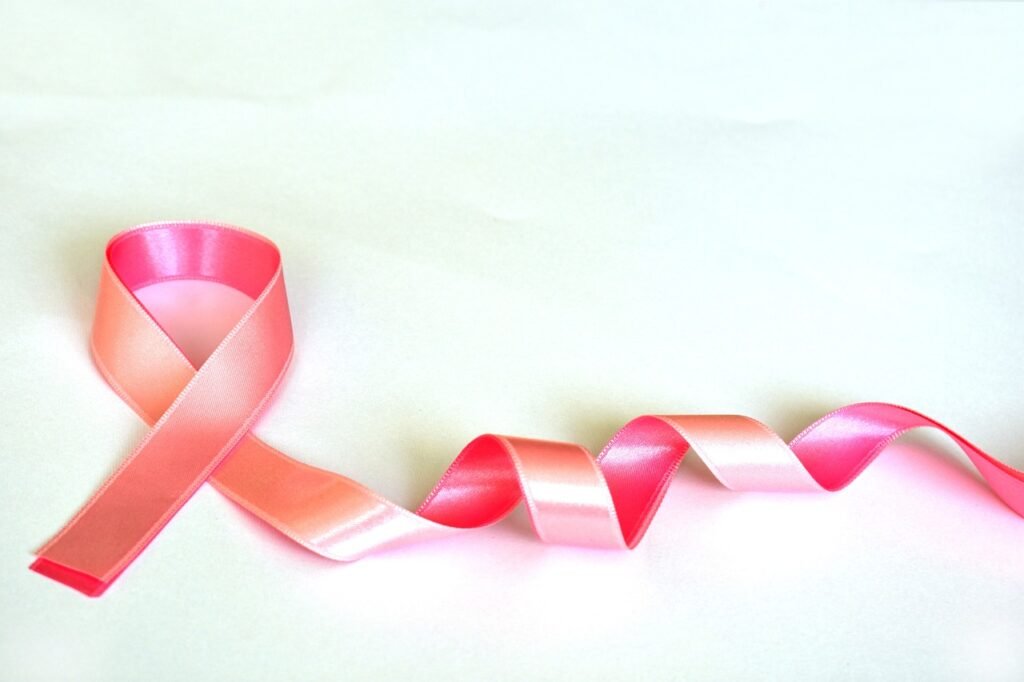So, you’ve heard about kidney stones and perhaps even know someone who has had them, but do you really know what they are and how they can be prevented? In this informative article, we’ll discuss kidney stones in men and shed light on the importance of prevention and awareness. From understanding the causes and symptoms to exploring effective preventative measures, you’ll gain a deeper understanding of this common condition that affects millions of men worldwide. So, grab a cup of tea and get ready to empower yourself with valuable knowledge on kidney stone prevention and awareness.

This image is property of pixabay.com.
Risk Factors for Kidney Stones in Men
Age
One of the key risk factors for developing kidney stones in men is age. As men get older, their risk for kidney stones increases. In fact, men between the ages of 30 and 50 are more likely to develop kidney stones compared to their younger counterparts. This age group is more vulnerable to developing calcium oxalate stones, which are the most common type of kidney stones.
Family History
Another significant risk factor for kidney stones in men is family history. If you have a family member who has had kidney stones, especially a close relative like a parent or sibling, your risk for developing kidney stones is higher. This suggests that genetics may play a role in the formation of kidney stones. If you have a family history of kidney stones, it is important to be aware of the risk and take preventive measures.
Dietary Factors
Dietary factors also contribute to the development of kidney stones in men. Consuming a diet that is high in animal protein, salt, and sugar increases the risk of kidney stone formation. Additionally, diets that are low in calcium and high in oxalate can also contribute to stone formation. It is important to maintain a balanced diet and make healthy food choices to reduce the risk of kidney stones.
Dehydration
Dehydration is a common risk factor for kidney stones in men. When you don’t drink enough fluids, your urine becomes concentrated, increasing the likelihood of crystal formation in the kidneys. It is important to stay hydrated by drinking an adequate amount of water throughout the day. Water helps to flush out your kidneys and prevent the formation of kidney stones.
Obesity
Obesity is closely linked to a higher risk of kidney stones in men. Excess weight can lead to insulin resistance and changes in urinary pH, which can promote the formation of kidney stones. Additionally, obesity is often associated with unhealthy dietary habits, such as high intake of processed foods and sugary beverages, which can further increase the risk of kidney stone formation. Maintaining a healthy weight through regular exercise and a balanced diet can help lower the risk of kidney stones.
Signs and Symptoms of Kidney Stones
Severe Pain
One of the most noticeable symptoms of kidney stones in men is severe pain. This pain typically occurs in the back or side and may radiate to the lower abdomen or groin. The intensity of the pain can vary, ranging from a dull ache to sharp, intense spasms. The pain may come in waves and can be debilitating, leading to discomfort and distress.
Blood in Urine
Another common symptom of kidney stones in men is the presence of blood in the urine. This is medically known as hematuria. The presence of blood can give the urine a pink, red, or brownish color. Hematuria is caused by the movement of kidney stones through the urinary tract, which can cause irritation and damage to the tissues lining the urinary system. If you notice blood in your urine, it is important to seek medical attention.
Frequent Urination
Frequent urination is another symptom that may accompany kidney stones in men. This is often a result of the body’s attempt to flush out the kidney stones through increased urine production. The urge to urinate may become more frequent and urgent, and you may experience discomfort or pain during urination. The increased frequency of urination can disrupt daily activities and affect your quality of life.
Urinary Tract Infections
Kidney stones can also increase the risk of urinary tract infections (UTIs) in men. When kidney stones obstruct the urinary tract, they can prevent the normal flow of urine, creating a favorable environment for bacterial growth. UTIs can cause symptoms such as pain or a burning sensation during urination, cloudy or foul-smelling urine, and an increased urge to urinate. If you experience these symptoms, it is important to seek medical attention for proper diagnosis and treatment.
Nausea and Vomiting
Nausea and vomiting are less common symptoms, but they can occur in men with kidney stones. These symptoms may be a result of the severe pain or the body’s response to the blockage caused by the kidney stone. Nausea and vomiting can lead to dehydration and further exacerbate the risk of kidney stone formation. If you experience persistent nausea and vomiting along with other symptoms of kidney stones, it is important to consult a healthcare professional.
Types of Kidney Stones
Calcium Oxalate Stones
Calcium oxalate stones are the most common type of kidney stones in men. They form when the calcium and oxalate levels in the urine are high, leading to the formation of crystals. These crystals can then clump together, forming stones. A diet high in oxalate-rich foods, such as spinach, rhubarb, and chocolate, can increase the risk of calcium oxalate stone formation. Limiting the intake of these foods and maintaining a balanced diet can help prevent the formation of calcium oxalate stones.
Struvite Stones
Struvite stones, also known as infection stones, are typically caused by urinary tract infections. These stones are more common in men who have a history of recurrent UTIs. Struvite stones can grow rapidly and become quite large if left untreated. Treatment usually involves removing the stones and treating the underlying infection.
Uric Acid Stones
Uric acid stones form when the urine is too acidic. This can occur due to factors such as a diet high in purines, which are found in red meat and certain seafood, or certain medical conditions that increase uric acid levels in the body, such as gout. Uric acid stones can be prevented by avoiding purine-rich foods and maintaining a diet that helps to balance urine pH.
Cystine Stones
Cystine stones are rare and are caused by a genetic disorder called cystinuria. This disorder affects the way the kidneys reabsorb and process certain amino acids, including cystine. Cystine stones can be difficult to treat and may require medications to prevent stone formation and surgical intervention to remove existing stones.
Diagnosis and Medical Tests
Medical History and Physical Examination
When diagnosing kidney stones in men, doctors will typically start by taking a detailed medical history and conducting a physical examination. They will ask about your symptoms, risk factors, and family history of kidney stones. During the physical examination, the doctor may palpate your abdomen and back to check for any tenderness or swelling that may indicate kidney stones.
Urinalysis
Urinalysis is a common diagnostic test used to detect the presence of kidney stones. It involves analyzing a urine sample to look for signs of infection, blood, and crystals that may indicate the presence of stones. Urinalysis can provide valuable information about the composition of the stones and help guide treatment options.
Blood Tests
Blood tests may be performed to assess kidney function and identify any underlying medical conditions that may contribute to the formation of kidney stones. These tests measure various parameters, including kidney function markers, calcium levels, uric acid levels, and other factors that can affect stone formation.
Imaging Tests
Imaging tests, such as ultrasound, X-ray, or computed tomography (CT) scan, are commonly used to visualize kidney stones and determine their size, location, and number. These tests can provide precise information about the stones and help guide treatment decisions. Imaging tests are especially useful for identifying larger stones that may require intervention.
Stone Analysis
In some cases, a doctor may perform a stone analysis to determine the composition of the kidney stone. This analysis involves collecting a stone sample, either through a urine collection or during a surgical procedure, and sending it to a laboratory for examination. Stone analysis can provide valuable insights into the type of stone and help guide treatment and prevention strategies.

This image is property of pixabay.com.
Prevention Strategies
Stay Hydrated
One of the most important preventive strategies for kidney stones in men is to stay hydrated. Drinking an adequate amount of water throughout the day helps to dilute urine and prevent the formation of concentrated crystals. Aim to drink at least 8 cups or 2 liters of water per day, or more if you are physically active or live in a hot climate. It is also important to limit the intake of sugary beverages and alcohol, as they can increase the risk of stone formation.
Manage Weight
Maintaining a healthy weight is crucial for preventing kidney stones in men. Obesity can increase the risk of stone formation by affecting urinary pH and promoting the accumulation of substances that can form stones. It is important to maintain a balanced diet, engage in regular physical activity, and seek professional guidance if necessary to manage your weight and reduce the risk of kidney stones.
Avoid High Oxalate Foods
Foods high in oxalate, such as spinach, rhubarb, beets, and chocolate, can increase the risk of calcium oxalate stone formation. Limiting the intake of these foods can help reduce the risk of stone formation. However, it is important to note that completely avoiding oxalate-rich foods is not necessary, as many of these foods also provide important nutrients. Instead, strive for moderation and balance in your diet.
Limit Sodium Intake
A high-sodium diet can increase the risk of kidney stones in men. Excess sodium can increase calcium excretion in urine, leading to the formation of calcium-based stones. Limiting sodium intake can help reduce the risk of stone formation. Aim to consume less than 2,300 milligrams of sodium per day, or even less if you have a history of kidney stones or other medical conditions.
Moderate Calcium Consumption
Contrary to popular belief, consuming adequate amounts of calcium is important for prevention of kidney stones in men. Calcium binds to oxalate in the intestines, preventing its absorption into the bloodstream and reducing the risk of stone formation. It is important to consume the recommended daily intake of calcium through dietary sources, such as low-fat dairy products and fortified foods, while avoiding excessive calcium supplementation.
Dietary Recommendations
Increase Fluid Intake
One of the key dietary recommendations for preventing kidney stones is to increase fluid intake. Drinking enough fluids, especially water, helps to dilute urine and flush out crystals and other substances that can contribute to stone formation. Aim to drink at least 8 cups or 2 liters of fluid per day, and even more during hot weather or intense physical activity. Water is the best choice, but other fluids like herbal tea, unsweetened fruit juice, and coconut water can also contribute to hydration.
Consume a Balanced Diet
Maintaining a balanced diet is essential for preventing kidney stones in men. A balanced diet includes a variety of fruits, vegetables, whole grains, lean proteins, and healthy fats. This ensures that you receive essential nutrients and minerals without excessive intake of substances that can contribute to stone formation. Avoid excessive intake of processed foods, sugary beverages, and unhealthy fats, as they can increase the risk of kidney stones.
Limit Oxalate-rich Foods
While it is not necessary to completely avoid oxalate-rich foods, limiting their intake can help reduce the risk of calcium oxalate stone formation. Foods high in oxalate include spinach, rhubarb, beets, chocolate, nuts, and tea. Moderation is key, and it may be helpful to consult a registered dietitian who can provide personalized guidance on managing oxalate intake based on your specific needs.
Include Citrus Fruits and Juices
Citrus fruits and juices, such as oranges, lemons, and grapefruits, can be beneficial for kidney stone prevention. They contain citrate, a compound that helps prevent the formation of certain types of kidney stones. Citrate binds to calcium in the urine, reducing its ability to form stones. Including these fruits in your diet or drinking their juices can help increase citrate levels and reduce the risk of stone formation.
Moderate Animal Protein Consumption
High intake of animal protein, particularly from red meat, can increase the risk of uric acid stone formation. Uric acid is a byproduct of the breakdown of purines, compounds that are found in high amounts in certain meats and seafood. Limiting the intake of red meat and opting for lean protein sources, such as poultry, fish, and plant-based proteins, can help reduce the risk of uric acid stone formation.

This image is property of pixabay.com.
Lifestyle Modifications
Exercise Regularly
Regular exercise is not only important for maintaining a healthy weight but also for preventing kidney stones. Exercise can help improve overall kidney function, promote healthy urine production, and reduce the risk of stone formation. Aim for at least 150 minutes of moderate-intensity aerobic exercise per week, along with strength training exercises to maintain muscle mass.
Maintain a Healthy Weight
Obesity is a significant risk factor for kidney stones in men. By maintaining a healthy weight, you can reduce the risk of stone formation. It is important to adopt a balanced diet, engage in regular physical activity, and seek support if needed to achieve and maintain a healthy weight. Losing weight gradually and adopting sustainable lifestyle changes can have long-term benefits for kidney stone prevention.
Quit Smoking
Smoking is not only harmful to your overall health, but it can also increase the risk of kidney stones. Smoking can affect blood flow to the kidneys, impair kidney function, and contribute to the development of stones. Quitting smoking can help improve kidney health and reduce the risk of kidney stone formation, as well as provide numerous other health benefits.
Reduce Stress Levels
Chronic stress can have a negative impact on kidney health and increase the risk of kidney stone formation. Finding effective stress management techniques, such as meditation, yoga, deep breathing exercises, or engaging in hobbies, can help reduce stress levels and promote overall well-being. Prioritizing self-care and taking time to relax and unwind can have a positive impact on kidney health.
Limit Alcohol Consumption
Excessive alcohol consumption can contribute to dehydration and increase the risk of kidney stone formation. Alcohol can interfere with the normal functioning of the kidneys and affect urine production. It is important to drink alcohol in moderation and ensure that you stay adequately hydrated by drinking enough water alongside alcoholic beverages.
Treatment Options
Natural Passage
In cases where the kidney stone is small and likely to pass naturally, a “watchful waiting” approach may be taken. The doctor will often recommend increasing fluid intake to help facilitate the passage of the stone. They may also provide pain medication to manage any discomfort during this process. It is important to follow the doctor’s guidance and monitor for signs of complications or worsening symptoms.
Medication
Certain medications can be prescribed to help prevent the formation of kidney stones or facilitate their passage. For example, medications may be prescribed to reduce the production of uric acid, decrease the concentration of calcium in the urine, or increase urine output. It is important to take medications as prescribed and attend regular follow-up appointments to assess their effectiveness.
Extracorporeal Shock Wave Lithotripsy (ESWL)
Extracorporeal shock wave lithotripsy (ESWL) is a non-invasive procedure commonly used to treat kidney stones. During ESWL, shock waves are directed towards the kidney stone, breaking it into smaller fragments that can be passed more easily. This procedure is often performed on an outpatient basis and may require multiple sessions depending on the size and location of the stone.
Ureteroscopy
Ureteroscopy is a minimally invasive surgical procedure used to remove or break up kidney stones that are causing significant symptoms or obstructing the urinary tract. During ureteroscopy, a thin tube with a camera is inserted into the urinary tract, allowing the doctor to visualize the stone and use specialized instruments to remove or break it up. Recovery time varies depending on the size and complexity of the stone.
Percutaneous Nephrolithotomy (PCNL)
Percutaneous nephrolithotomy (PCNL) is a more invasive surgical procedure used for larger kidney stones or those that are difficult to treat with other methods. During PCNL, a small incision is made in the back to access the kidney directly. Specialized instruments are used to remove or break up the stone. This procedure may require a hospital stay and has a longer recovery period compared to other treatments.
Follow-up Care
Monitoring Recurrence
After experiencing kidney stones, it is important to monitor for any signs of recurrence. This includes being aware of symptoms such as severe pain, blood in urine, or changes in urinary habits. Any recurrence should be promptly reported to a healthcare professional for proper evaluation and management.
Dietary and Lifestyle Modifications
Dietary and lifestyle modifications are crucial in preventing the recurrence of kidney stones. It is important to maintain a balanced diet, stay adequately hydrated, and follow the specific recommendations provided by a healthcare professional. Regular exercise and weight management should also be incorporated into daily life to minimize the risk of stone formation.
Regular Check-ups
Regular check-ups with a healthcare professional are important for ongoing monitoring and evaluation. These check-ups may involve urine and blood tests to assess kidney function and to monitor for any changes that may indicate the presence of kidney stones or other kidney-related complications. It is important to attend these appointments as recommended and actively communicate any concerns or symptoms.
Importance of Awareness and Education
Understanding Kidney Stones
Raising awareness and promoting education about kidney stones is important for reducing the risk and impact of this condition in men. Understanding the risk factors, symptoms, and treatment options can help individuals make informed decisions about their health. By increasing knowledge and awareness, men can take proactive steps to prevent kidney stones and seek appropriate medical care when needed.
Recognizing Symptoms
Being able to recognize the symptoms of kidney stones is crucial for early detection and intervention. Understanding the signs, such as severe pain, blood in urine, frequent urination, and nausea/vomiting, can help men seek medical attention and receive timely treatment. Recognizing symptoms and seeking medical help promptly can reduce the risk of complications and improve outcomes.
Promoting Prevention Strategies
Promoting prevention strategies is key to reducing the incidence of kidney stones in men. By educating individuals about the importance of staying hydrated, maintaining a healthy weight, and making dietary and lifestyle modifications, we can empower men to take control of their kidney health. Prevention strategies can help minimize the risk and burden of kidney stones, ultimately improving overall health and quality of life.
Supporting Research and Funding
Supporting research and funding for kidney stone studies is essential for advancing our understanding of the condition and developing more effective prevention and treatment strategies. By investing in research, we can improve diagnostic techniques, explore novel treatment options, and refine preventive measures. This will ultimately lead to better outcomes for men at risk for kidney stones.

